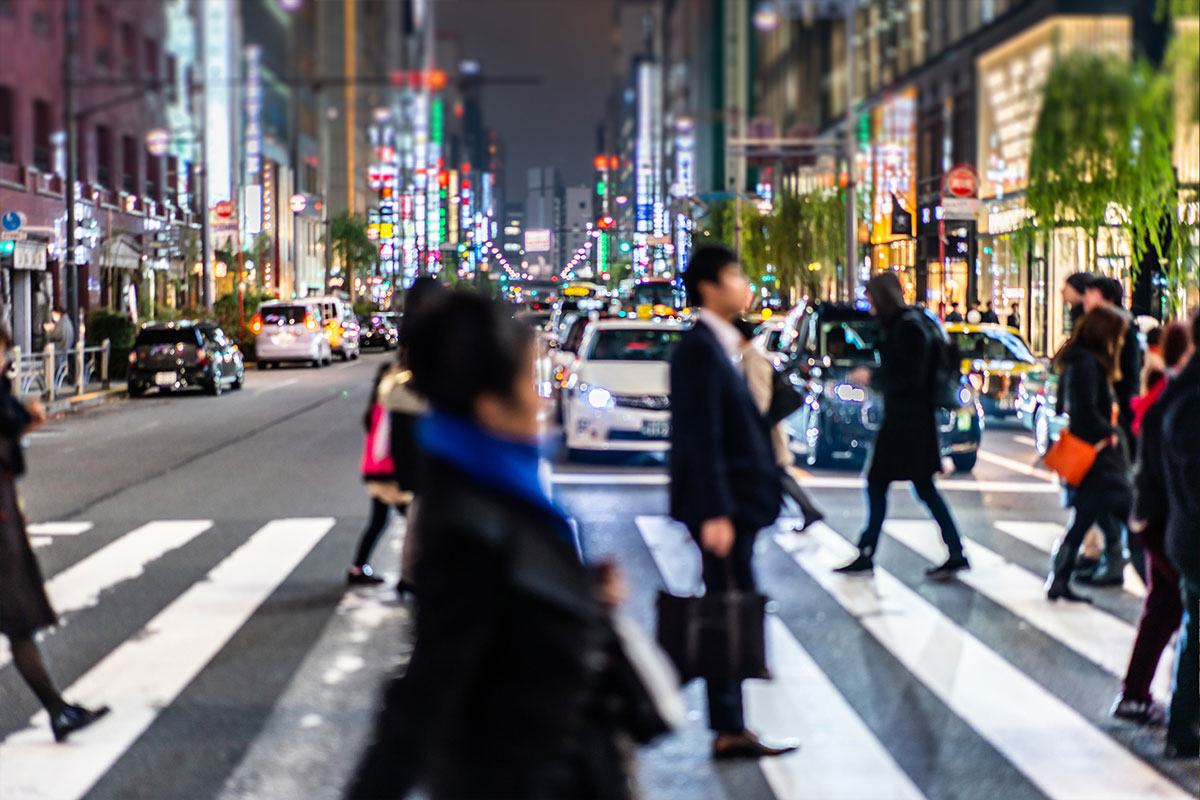

WHAT YOU SHOULD NOT DO IN JAPAN? – TIPS FOR TRAVELLERS
Do not litter
First of all, in major cities, such as Tokyo, it is hard to find a dustbin. You must carry all the empty packaging and chewing gum with you and, preferably, throw it out at home. The same applies to the surprises left by your pets. Otherwise you can face street ostracism. The streets of the Country of Cherry Blossoms are clean and despite the huge population density, settings known from Delhi or Beijing are nowhere to be found. The Japanese are very serious about waste sorting, which is usually the first piece of information given to a tourist at check-in.
Avoid phone calls in public transport
In many countries loud conversations over the phone are still a standard. Even though signs or messages asking the passengers to respect their fellow travellers and refrain from phone calls are becoming increasingly common, the requests are often ignored. The Japanese, on the other hand, are very serious about this. True, almost everyone on the underground or on the bus uses a smartphone. But they either engage in activities that are silent or use headphones. When the Japanese get an important phone call and have to answer, they make it quick and quiet, and wait to continue until they leave the means of transport.
Sticking chopsticks upright in a dish
Before going to Japan, many tourists check the most popular rituals, signs and even learn to pronounce the most important Japanese phrases. Some also learn to eat with chopsticks, a few mastering the art almost as well as the Japanese. While dining in a local restaurant or with inhabitants of the Country of Cherry Blossoms, you will definitely impress them with proficient use of chopsticks. Just remember to avoid the foux pas of sticking chopsticks upright in a dish as it is a symbol of a funeral ritual, associated with grave. This may be met with negative responses so please remember to place your chopsticks next to your bowl or plate or on the coaster.
No smoking in Japan
A large part of the Japanese society smokes, and with population density of 330 people per km2, you may be under an impression that cigarette smoke is everywhere. The presence of the city smog makes the feeling even more intense. A new bill has emerged in connection with the Olympics, which is to ban smoking from public places. Furthermore, a report of the Ministry of Health, Labour and Welfare emphasises that passive smoking leads to a number of serious diseases and results in up to 15,000 deaths a year (just in Japan).
How should we behave in a Japanese restaurant?
We all have different taste buds. Some prefer spicy food while others choose mild flavours. According to the rules of savoir-vivre, adding spices to your food before trying it first is a bad habit. You should first take a bite to check the taste and then add salt or pepper if necessary. In Japan, however, reaching for salt at all might be considered impolite. In cheap roadside food places you can add as much spices as you wish. But in more sophisticated and elegant restaurants this should be avoided. The chef will take this gesture badly, thinking that you did not enjoy the food and that it needs to be improved.
Another useful tip is that you cannot charge your phone at a restaurant without asking the staff for permission. Otherwise your conduct could be perceived as ill-mannered, and in the worst-case scenario – as electricity theft. If you are planning to tour the Country of Cherry Blossoms with phone navigation and also use the phone to take pictures, remember that the battery will run out soon. You might want to have a traditional map or a charged power bank with you just in case.
Having your own car in Japan
Japan has a highly developed automotive market. It is the home country of as many as 10 car makes we all know. As a result, the prices of native cars are not excessive and everyone can afford them. Still, not everyone may have their own vehicle. In addition to getting a driving licence, a driver additionally needs a certificate confirming purchase of a parking space within a 2 km radius from their place of living. This considerably complicates things, for example if people move, especially to big cities lacking space. Duo to spatial limitations, vertical parking lots are emerging, where cars are pulled up using special lifts.
Japan – a country of etiquette
Japan is still exotic to the Western culture so Westerners are at a high risk of breaking many regulations and social norms. This is because the Japanese are highly attached to their past traditions. Certain unwritten precedents have also arisen because of the hierarchical nature of the country. It is easy to commit a foux pas in trivial matters, such as drinking tea, and to violate custom, without knowing, in Japanese baths, and even to get thrown out of them. So it seems reasonable to learn more about Japanese culture in advance – to avoid trouble and remain a good gaijin.














